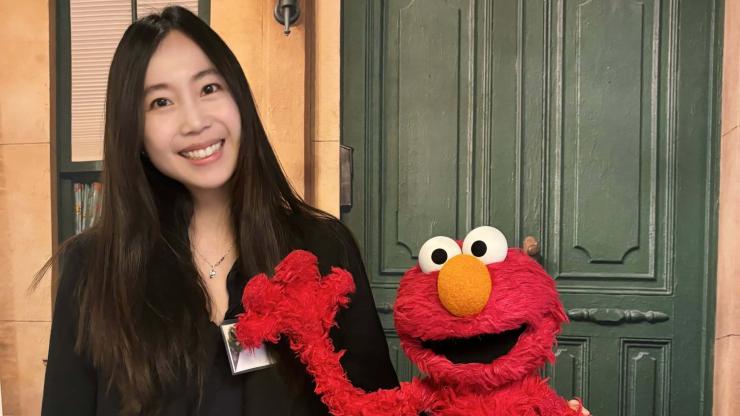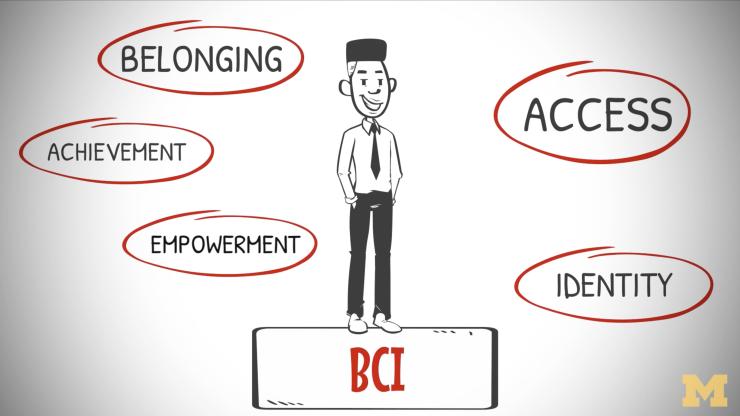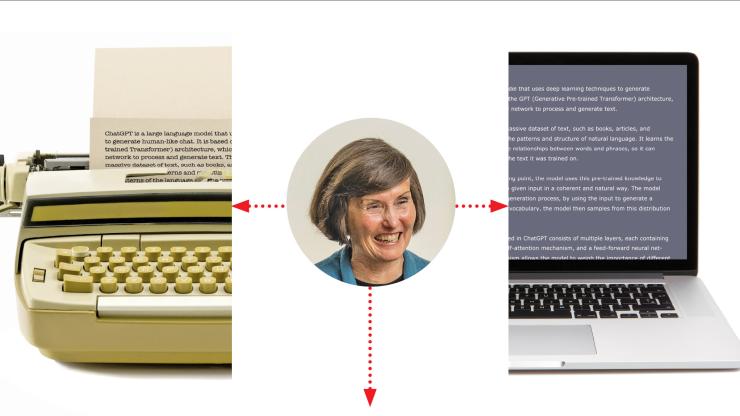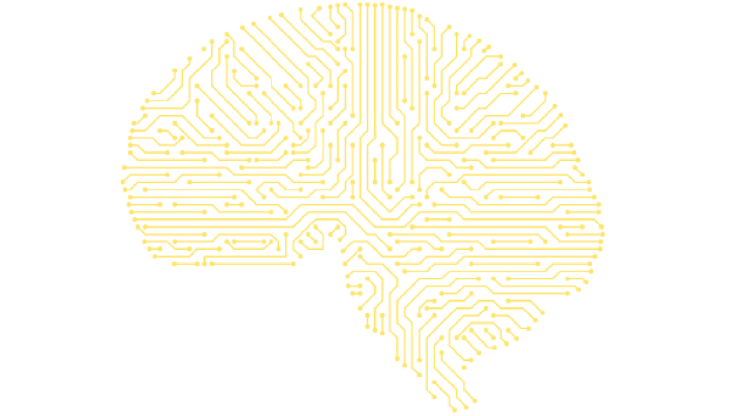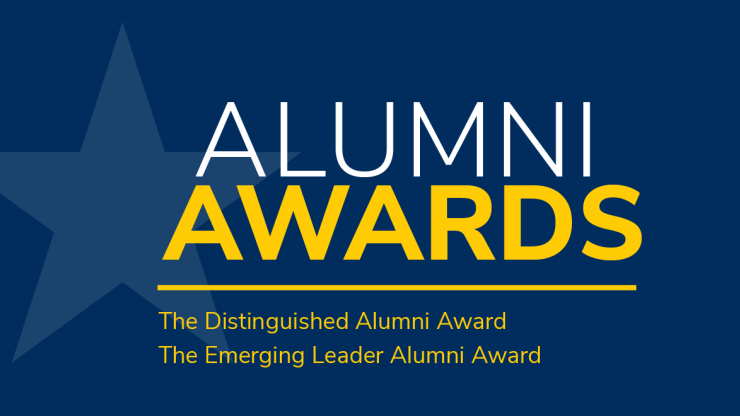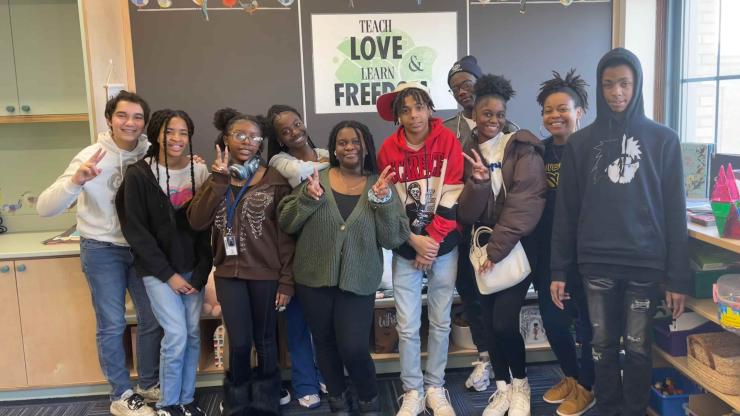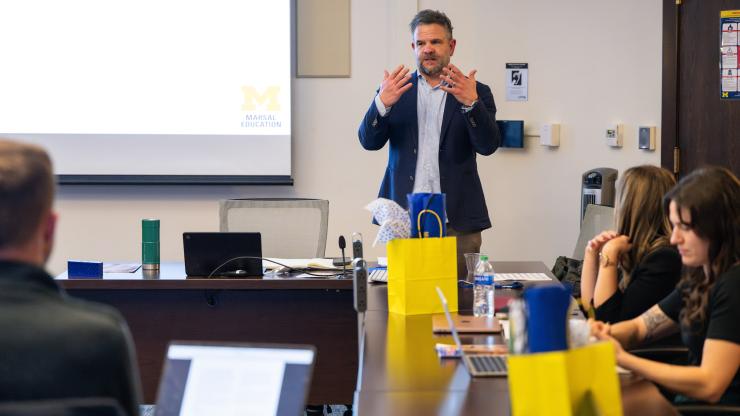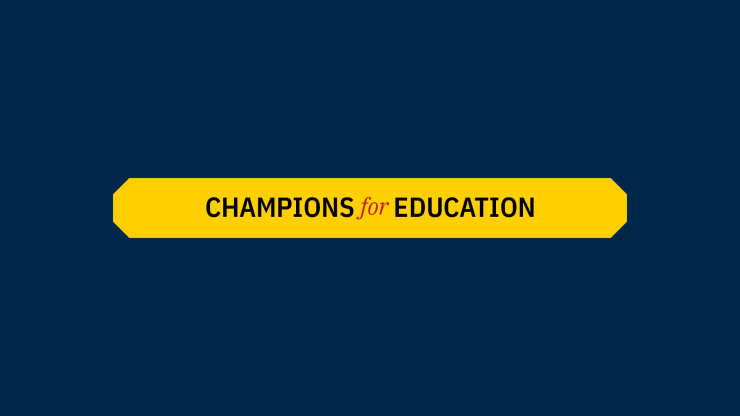
Spring 2024

Dean's Letter
When I ask people to imagine possibilities for the future of education—even the very near future—I hear a fascinating variety of scenarios. Ranging from hopeful to grim, most people seem to have a sense that education from pre-Kindergarten through college is on the verge of evolving—or needs to be.
We have the privilege of shaping the future of education every day here at the Marsal Family School of Education. When we imagine the possibilities, we pay particular attention to centering the experiences of educators and learners, basing our ideas on rigorous research, and holding justice and equity as inviolable priorities. We let our imagination be bold, ambitious, and creative while simultaneously staying grounded in the scholarship for which we are so well respected.
One prediction I have heard is that artificial intelligence will obviate the need for teachers in classrooms. Though I vehemently disagree with that suggestion, it is reasonable to think that AI will continue to change education. We are committed to making that change be productive and healthy for both learners and educators and share a few examples with you in this edition of Michigan Education.
Dr. Anne Ruggles Gere brought her expertise in the teaching and learning of writing to U-M’s Generative Artificial Intelligence Advisory Committee, which was tasked with providing guidance to the university community on the use of generative AI tools. She delved into questions around the meaning of learning to write, ethical implications and equity concerns of adopting AI tools, and responsible AI development and research on our campus. As many educators (including at our own university) have discovered, the emergence of AI forces instructors to think differently about assignments and, in doing so, has the potential to lead to more meaningful, dynamic instruction. Dr. Gere shares some of her reflections on the process of producing the report that guides the university’s approach to AI.
Dr. Ying Xu explores the use of AI to make better learning tools for young children. She observed early in her research that children learn more from using media if someone engages them in conversation about what they viewed or played. Dr. Xu saw an opportunity to incorporate conversational AI into children’s television programming to maximize learning gains. Her collaborations with PBS KIDS have yielded exciting new AI-enhanced programming in which children can interact with characters from educational shows. Xu’s work is encouraging for another reason: her emphasis on participatory design has led her to begin a new project empowering teachers and parents to use AI to generate learning sources for children.
Dr. Jamaal Matthews and his team have created a virtual coaching space designed to support secondary mathematics teachers in creating inclusive learning environments. Years of research on minoritized student experiences in mathematics classrooms led to the creation of the Belonging-Centered Instruction framework that the team uses in their coaching. Dr. Matthews is also intentional about creating a sense of belonging for teachers in the coaching. This helps them move beyond enacting a set of practices to experiencing a shift in mindset so that they can best support their students’ development of identity and belonging and, ultimately, mathematics success.
In the world of human intelligence, at our P-20 partnership school in Detroit, The School at Marygrove, Dr. Alaina Jackson and English teacher Bayan Founas launched the REACH Center—an inviting space in the high school that supports the school’s culture and climate through a culturally responsive restorative justice lens. Activities hosted by the center encourage students to bring their whole selves to school, develop critical consciousness, recognize and resist injustice, and connect with other people. The center is also home to a mentorship initiative in which high schoolers lead activities for students at the elementary school. The REACH Center encompasses many of the aspects that we, the partners, envisioned when creating a justice-centered multi-generational learning community in Detroit.
Several years ago, we launched our Teach Blue Initiative to strategically provide resources to recruit, prepare, retain, and recognize teachers. This year, we launched Teach Blue Fellows—a cohort of expert teachers who will be working in partnership with Marsal School faculty to define problems of practice in their work and to craft solutions that they implement in their schools. They will regularly document their work to share with beginning teachers, experienced peers, parents and community members, and education researchers. The work of veteran educators is complex and fascinating—but too often invisible. We are eager to collaborate with our fellows, communicate their findings, and elevate them as committed professionals over the next year.
Finally, we are proud to introduce the 2024 Marsal School Alumni Award recipients. We have designated three categories for recognition: the Emerging Leader Alumni Award presented to Dr. Andrew Kwok (BS ’07, PhD ’15); the Distinguished Alumni Award for Primary/Secondary Education presented to Patricia Dignan (EdD ’82); and the Distinguished Alumni Award for Postsecondary Education presented to Dr. Julian Vasquez Heilig (AB ’97, AM ’99). It is inspiring to read the stories of alumni making a difference in many different areas of education, and an honor to give out these awards.
We at the Marsal School are optimistic about the possibilities for the future of education. We see many reasons to be. We move forward in this crucial work knowing that whether the change we seek is technology-assisted, policy-defining, or paradigm-shifting, we will hold ourselves accountable to learners, families, educators, and society, never losing sight of our commitment to justice and equity.
